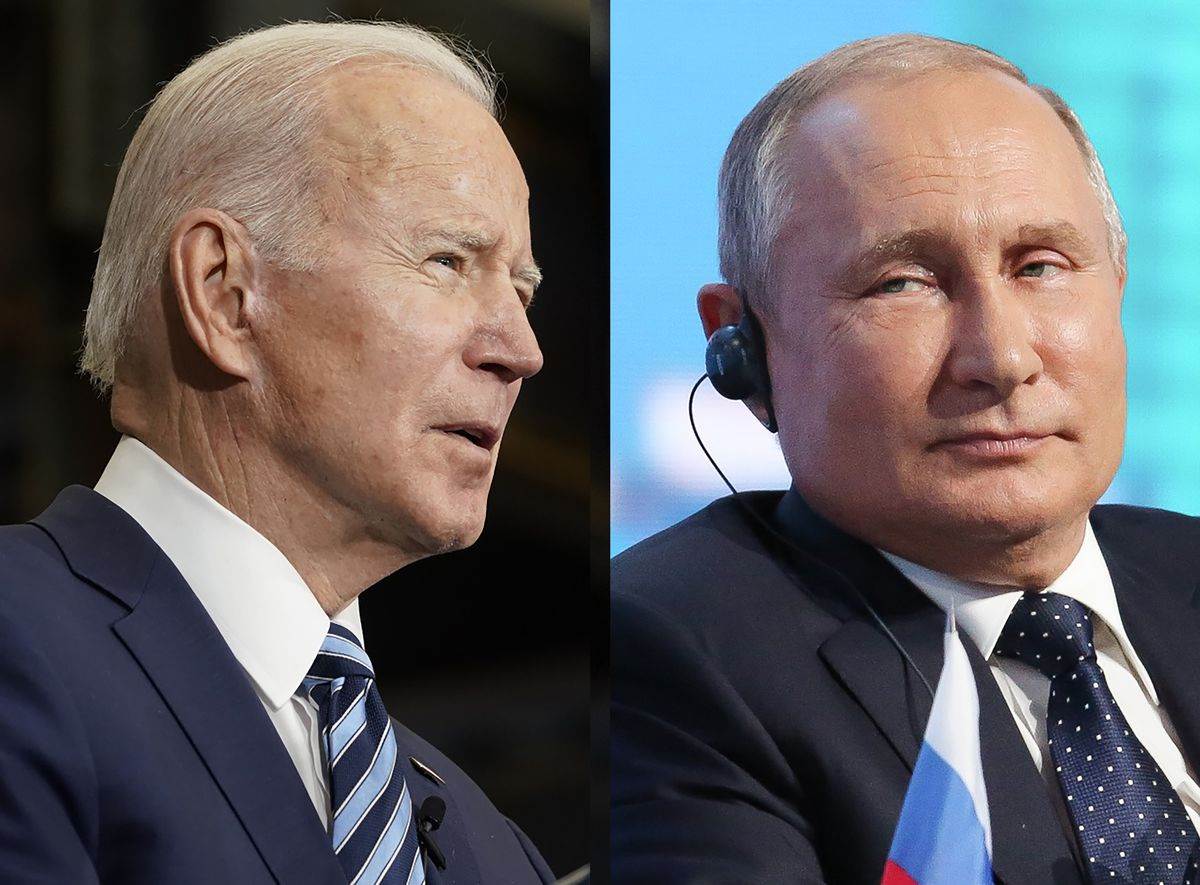Stalemate persists following Biden, Putin phone call on Ukraine
A senior US official saying that the call brought “no fundamental change” to the situation
-

The phone conversation between Biden and Putin lasted more than an hour.
In a phone call focused on finding a diplomatic resolution to the Ukraine situation, US President Joe Biden told his Russian counterpart Vladimir Putin that the US would “impose swift and severe costs on Russia” if it invades Ukraine.
The phone conversation, which lasted more than an hour, saw Biden talking about how the invasion would “produce widespread human suffering and diminish Russia’s standing,” causing “irrevocable reputational damage” for the country.
On the other hand, Putin stressed that the West is not pressuring Ukraine enough to implement the Minsk agreements, which are instrumental to balancing the situation.
A senior foreign policy adviser in the Kremlin, Yury Ushakov, said that the Russian President “noted that there is not enough pressure on the part of the Western states on Kiev so that it fulfills its obligations [under the Minsk agreements].”
Putin also stressed the tensions the continuous western supply of weapons to Ukraine is creating, notably as it might incite provocations by the Ukrainian armed forces in Donbas and Crimea.
Feedback loop
Ushakov described the conversation between the two presidents as “balanced and businesslike” and noted that both have agreed to “continue contacts at all levels.” Nevertheless, the Kremlin adviser rejected claims emanating from the US that a Russian attack was imminent: “Hysteria has reached its peak.”
Concurrently, Washington adopted a drier tone, with a senior US official saying that the call brought “no fundamental change” to the situation whilst adding that despite keeping communication channels open between the two presidents, “Russia may decide to proceed with military actions anyway.”
This alarmist rhetoric has been prevailing recently in all US official and media reports, despite Moscow continuously reassuring that it has no intention of invading Ukraine.
Russia’s discontent with Washington’s approach was even interestingly echoed by Ukrainian President Volodymyr Zelenskiy, who criticized the White House’s tone of messaging that is creating panic in the country without offering founded proof about the possible “invasion”.
Biden previously named 16 February as the date on which Russia intends to invade Ukraine. The president's claims come following US National Security Advisor Jake Sullivan's statement that a Russian attack on Kiev is expected before or by the end of the Beijing Winter Olympics on February 20th.
Russian foreign minister Sergey Lavrov accused the US of purposefully dismissing its security proposals, chiefly the issue of Ukraine possibly joining the NATO, which Moscow categorically refuses, in addition to the continuing encroachment of NATO forces in Eastern Europe.
However, the FM refuted the idea that Russia had any plans to invade, stressing that the US’ warnings are part of a propaganda campaign: “After Russian troops finish drills and return to barracks, the west will declare ‘diplomatic victory’ by having ‘secured’ Russian ‘de-escalation’.
Lavrov went on to describe Washington’s approach as a “predictable scenario and cheap domestic political points”.
Panic in Ukraine
Washington’s reports have caused severe panic within Ukraine, causing a large number of Western countries to evacuate their embassy staff or reduce their number, whilst urging their citizens to consider leaving the country.
Both US and Russia reduced the number of their diplomats in Kiev, keeping only a small group in order to keep communication channels open.
Furthermore, Washington has taken a decision today to relocate US embassy staff in Ukraine from Kiev to Lviv where . 'core US diplomatic team' will be working.

 4 Min Read
4 Min Read









